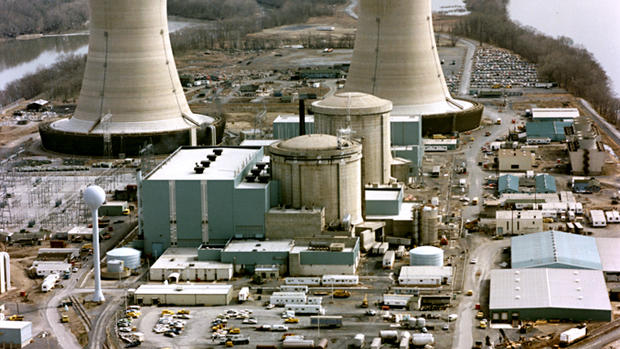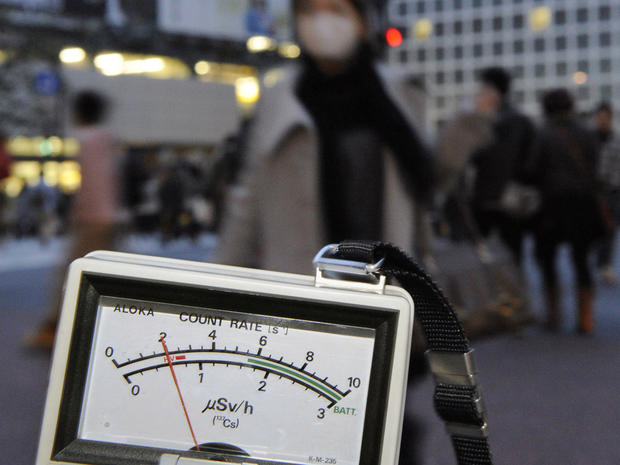Radioactivity in the air, but not hazardous yet
More than 140,000 people have been ordered to stay indoors near Japan's badly damaged Fukushima Dai-ichi nuclear complex, where explosions have rocked three reactors and radiation is emanating from spent fuel at a disused fourth reactor.
But while the situation in serious, there is no indication that the radiation released so far poses a serious health risk in the area around the complex or anywhere else.
"The bottom line for human risk is as follows - the levels that are currently in the air around the Fukushima reactor complex have declined and are not at levels that are going to be dangerous to human health at the current time," Dr. Cham Dallas, director of the Institute for Health Management and Mass Destruction Defense at the University of Georgia told CBSNews.com.
Special report: Disaster in Japan
Japan nuke plant fire spews dangerous radiation
Nuclear meltdowns explained
How Fukushima explosions differ from Chernobyl
Dallas said that the detected radiation has fallen from several hundred milisieverts -- a measure of absorbed radiation dosage -- to just 12 in the area around the plant and just 1 milisievert in Tokyo.
The level considered extremely dangerous for short-term radiation exposure ranges from 5,000 to 100,000, although lower levels are of concern when there is longer-term exposure, Dallas said.
The current radiation exposure for residents near Fukushima, Dallas said, is equivalent to being in the hospital and getting numerous x-rays at once.
The Fukushima plant was damaged by Friday's 9.0-magnitude earthquake and the ensuing tsunami that is believed to have killed more than 10,000 people, plunged millions into misery and pummeled the world's third-largest economy.
The damage set off hydrogen gas explosions at three active nuclear reactors, where officials are scrambling to keep the nuclear fuel from overheating.
"The good news is that they shut down all the reactors at the outset of the earthquake," Dallas said. "The bad news is that with three of those reactors, the backups for continuing to cool the reactors have failed."
"When you turn your oven off at home, it takes some time for it to cool down. In the same way, a nuclear reactor to cool down. But it takes weeks or even months for it to cool down," he said. "You have to continue to cool these reactor cores while that process is occurring. If you don't do that, the intense heat built up inside the reactor cores will start to melt the uranium fuel rods."
There are still around 70 nuclear workers operating the control rooms of the three stricken reactors at the Fukushima site, with 800 on reserve at a nearby location.
"These people are the heroes of the hour," Dallas said, noting that the control room workers might be exposed to higher radiation than the readings farther afield (although the control rooms are designed to block out radiation and may also be quite safe).
Dallas said that a friend who works in Japanese emergency operations is in contact with one of the control room workers.
"He says he is ready to die if necessary. He's willing to die if he has to stay in there," Dallas said. " It's his job is what he said."
But while much of the public is focused on the meltdown risk at these three now-cooling reactors -- Units 1 through 3 of the Fukushima plant -- it is a fourth reactor there that is actually emitting radiation, one that was turned off 105 days before the earthquake.
"The problem has come from used fuel rods that were stored in a pool of water - sort of like a swimming pool," at the shut-down Unit 4 site, Dallas said. "Somehow, the water from that pool must have been drained. Those fuel rods caught on fire. And the radioactivity that we're now seeing was probably caused by those rods."
Dallas noted that, in the U.S., "We have pools with these spent fuel rods all over the country," that could pose similar risks in the event of natural disasters or leaks.



